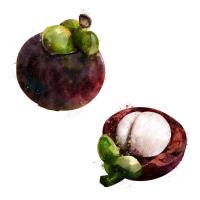Can I Water Plants with Milk?
When it comes to gardening and caring for plants, there are plenty of tips and tricks to keep your greenery healthy and thriving. Some of these tips may sound unconventional or strange, such as using milk as a fertilizer or watering agent. So, can you actually water plants with milk? The answer is, it depends!
The Pros and Cons of Using Milk as a Plant Watering Agent
On one hand, milk contains several nutrients and minerals that can benefit plants, such as calcium, potassium, and magnesium. These nutrients can help promote plant growth and health, just like they do for humans. Additionally, the protein and sugars in milk may attract beneficial bacteria in the soil, which can also aid in plant growth.
However, there are also some potential downsides to using milk as a plant watering agent. For one, milk can be relatively high in fat, which can cause it to spoil quickly and attract unwanted pests or mold. Additionally, milk may not provide enough water for plants, especially if they require a lot of moisture. Using milk as a watering agent may also alter the pH levels of the soil, which can be harmful for some types of plants. Lastly, milk may not be the most environmentally-friendly or cost-effective option for watering plants regularly, especially if you have a large garden or several plants to care for.
When to Use Milk to Water Plants
If you do decide to use milk as a plant watering agent, it’s important to use it sparingly and only when appropriate. For example, you may want to try using milk as a fertilizer for certain plants that need extra calcium or other nutrients. You can mix a small amount of milk with water and pour it onto the soil around the plant, being careful not to saturate the soil too much.
You may also want to try using milk as a pest deterrent for certain types of plants. The sugars in milk can attract beneficial insects like ladybugs, which can help control aphids and other harmful pests. Simply mix milk with water and spray it onto the leaves and stems of the plants, or pour it onto the soil around the base of the plants.
Alternatives to Milk for Watering Plants
If you’re hesitant to use milk as a plant watering agent, there are plenty of other options available that can help keep your plants healthy and happy. For example, you can use rainwater or tap water that has been left out overnight to let any chlorine dissolve. You can also use compost tea, which is made by steeping compost in water and then straining the liquid. This nutrient-rich liquid can be poured onto the soil or sprayed onto the leaves of plants.
You can also try using other organic fertilizers or soil amendments, such as bone meal, fish emulsion, or seaweed extract. These products are designed to provide plants with the nutrients they need without harming the soil or the environment.
Conclusion
In conclusion, while using milk as a plant watering agent may have some benefits, it’s not always the best option for every type of plant or gardening situation. If you do choose to use milk, make sure to do so sparingly and only as a supplement to other watering methods. Alternatively, you can try using other organic fertilizers or watering agents that may be more effective or environmentally-friendly. With a little bit of experimentation and attention to your plant’s needs, you can find the best methods for keeping your plants healthy and thriving!

 how many times do yo...
how many times do yo... how many planted tre...
how many planted tre... how many pine trees ...
how many pine trees ... how many pecan trees...
how many pecan trees... how many plants comp...
how many plants comp... how many plants can ...
how many plants can ... how many plants and ...
how many plants and ... how many pepper plan...
how many pepper plan...






























